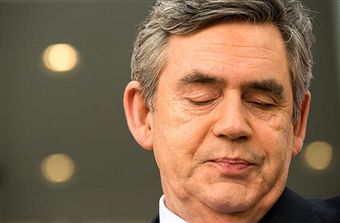 Today, President Barack Obama hosts leaders from 46 countries for a two-day nuclear
security summit that will focus on how to better safeguard weapons materials, both old and new, and to keep them out of the hands of terrorists. Labour’s manifesto was also launched today.
What do the two things have in common? Not a lot, really. But they could have had a lot in common – if the Labour government had been willing to be bold.
Today, President Barack Obama hosts leaders from 46 countries for a two-day nuclear
security summit that will focus on how to better safeguard weapons materials, both old and new, and to keep them out of the hands of terrorists. Labour’s manifesto was also launched today.
What do the two things have in common? Not a lot, really. But they could have had a lot in common – if the Labour government had been willing to be bold.
Here’s how. As preparation for the summit, the US signed a new treaty with Russia last week to reduce the nuclear stockpiles of both nations, and the Obama administration issued a revised nuclear arms strategy intended to reinforce the nation’s nuclear deterrent.
Until recently there were many who doubted that the US would follow-through President Obama’s pledge in Prague last year to reduce its stockpiles. Many of the sceptics were British officials.
As a result, when the US administration were quetly looking for allies to back President Obama’s policy, perhaps even dip their toes in the water first, Britain stayed silent. Now, post-healthcare, the US has jumped right in, leaving Britain to attend the summit, declare its support for the US policies but be drowned out by much larger and important nuclear states.
A real opportunity to lead was missed. If Britain had declared a few months ago a willingness to reduce its nuclear arsenal before anyone else, Britain would have been hailed as a real leader and earned gratitude from the US administration. Labour could just have let it slip they were thinking about including such a commitment in their manifesto. But they did not, even though such plans were proposed to No 10.
In today’s world, using Britain’s inbuilt international advantages – the English language, a UN seat, a dynamic economy, a history of freedom-promotion, effective armed forces and a nuclear arsenal – are key to countering any pressure from rising powers like China. In this case, Britain and the Labour government missed out.






Comments